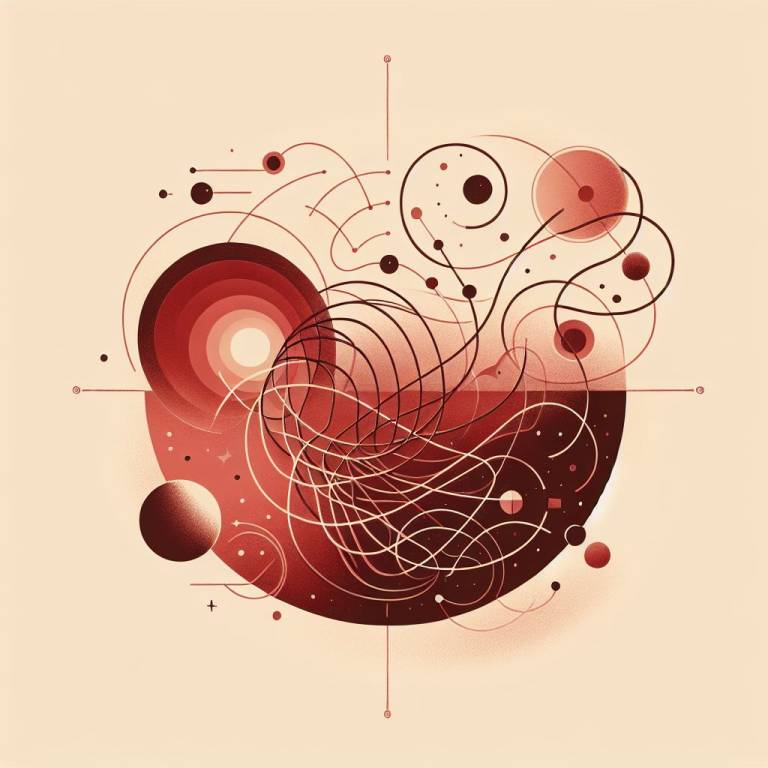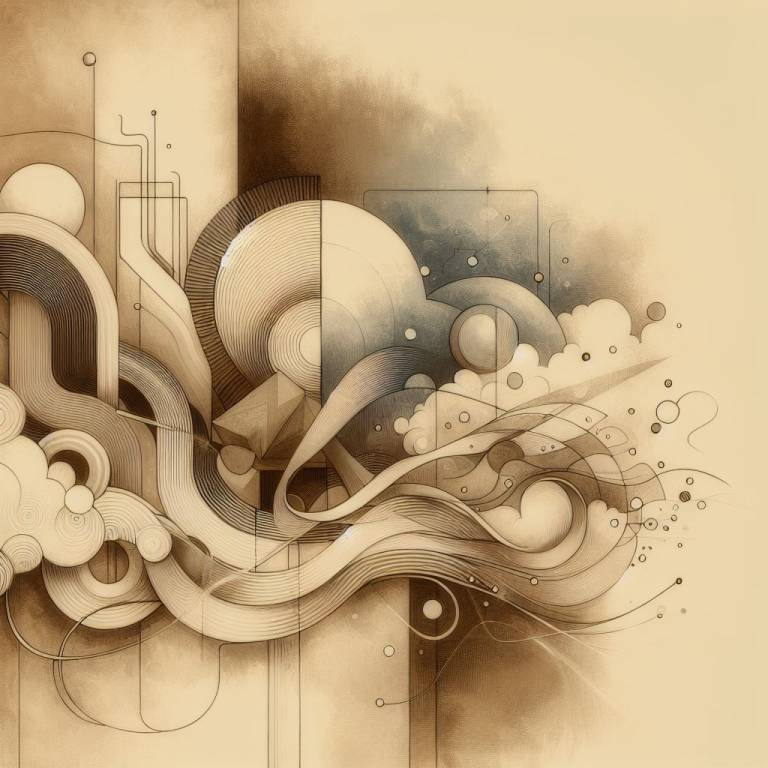The article “Power in International Politics” provides a taxonomy of different theoretical traditions in conceptualizing power and puts them in relation to each other in order to produce a categorization. In this article, different conceptualizations of power are structured according to a set of coordinates. At the center of their taxonomy, Barnett and Duvall position two central debates which usually separate conceptualizations of power in different theoretical traditions: (1) whether agency or structure is the main driving force of power relations; and (2) whether the workings of power are characterized by direct or diffuse social relations. Doing that, the authors separate power into four types: compulsory, institutional, structural, and productive. We appreciated getting engaged with this taxonomy as it provides openness, clarity, and a good categorization of different discussions in relation to the concept of power in the discipline.
The article “Decentering Global Power: The Merits of a Foucauldian Approach to International Relations” argues for a more thorough engagement with the poststructuralist and, more specifically, the Foucauldian radical epistemology to decenter and diversify totalizing accounts of global power relations. The approach emphasizes paying attention to the contextualized political practices. Instead of rigid structures, the Foucauldian and, more generally, poststructuralist tradition pays attention to constant mobilities and reconfigurations. This allows to see the power in its heterogeneity. Instead of the binary opposition of powerful and powerless, or strong and weak, the poststructuralist theories allow to trace the heterogenous field of production of power beyond specific subject positions and direct relations between them.
Straightaway into (ontological) contradictions
Differences, possible incompatibilities, and their reconciliation were at the center of our discussion. The article by Barnett and Duvall seemingly seeks to achieve exactly this: to map the difference and to propose productive collaborations between different conceptualizations of power. Barnett and Duvall argue for disavowing the idea that only one right way to conceptualize power might – and should – exist and for acknowledging different ways in which power can work.
We sympathized with the authors’ intention to reconcile these different conceptualizations of power as it corresponds to our group’s previous interest in the ideas of integrative pluralism (Tampere International Relations Reading Group, 2024). However, despite our appreciation of a very useful taxonomy of different theoretical traditions, we felt that Barnett and Duvall’s argument about productive collaborations between different theoretical approaches fell short of this goal.
Even though Barnett and Duvall argue that their taxonomy portrays types of power, they seem to be more than that. Those types do not seem to differ in their research question, design, or topic. Rather, these proposed “types” differ in their ontological positions which underline a more severe differences between them. On the one hand, the authors seem to engage with the ontological positionings of different concepts: they use ones of the core ontological debates (e.g., actor vs. structure and direct vs. diffuse social relations) in order to categorize power into these four types. On the other hand, the article’s final argument of the possibility “not to treat these conceptual forms as competing” (Barnett and Duvall, 2005: 67) sounded a bit naïve: the foundations of most theoretical traditions are often defined through their (ontological) critique of other theories. Removing the issue of ontology from the taxonomy as well as from the author’s position prompts us to further talk about the power of a researcher.
Creating (disciplinary) worlds: The power of a researcher
While casting aside the question of the ontological incompatibility of different theories, the taxonomy by Barnett and Duvall appears somewhat free of ontological premises itself. However, this seemingly objective gaze as if from “above” might be challenged. As pointed out by Rodney Bruce Hall (2019), the taxonomy by Barnett and Duvall is not free from the authors’ own theoretical positioning, i.e., constructivism. Should the authors be from another ontological and theoretical tradition, their analysis, mapping, and placements of different types of power could have been different – as well as possible arguments about the reconciliation of these types.
While such taxonomies promote plurality and openness and are very helpful in navigating the academic field, they simultaneously reproduce rigid boundaries and categorizations. In this regard, the systematizations are both enriching and limiting While they are beneficial for bringing in clarity, it is important not to apply them in an orthodox way and, instead, to be open for further constructive critique and development.
It prompts the question about the power of a researcher. A researcher is not a neutral and objective subject but rather has a capacity to act upon the world through their research. By constructing certain scientific realities, researchers affect the social, political, and economic worlds around them. Arguably, this power is even amplified when one constructs a world of a discipline: it might cement very specific views of how the discipline “objectively” looks like. This world-making process might be further reinforced by other researchers who follow similar lines of thought. There is nothing necessarily wrong with this: arguably, this is how all disciplines (and any worlds beyond science) operate. However, it signals the power of a researcher.
Stuck in conversion: Structuralism and poststructuralism
The article by Rosenow (2009), in its turn, prompts further questions about the poststructuralist approach to power, its limitations, and possible conversations with other theoretical traditions. Surely, the poststructuralist thought, including the Foucauldian conceptualization of power, has greatly enriched social sciences. Being essentially born out of a critique to the preceding structuralist tradition, poststructuralist theories emphasize the destabilization of normative, universal, and monolithic categories such as, for example, power, state, or capitalism and invite the scholars to analyze the production of power relations in every contextualized time and place. However, the poststructuralist understanding of power arguably has its limitations and lacunae.
We discussed the political implications of the poststructuralist conception of power and the related understanding of social change. This is, arguably, one of the main tasks of critical research. First, the idea of decenteredness of power can obscure the application of political accountability and responsibility (cf. Kinkaid, 2019). Secondly, any political mobilization for political change and finding the common ground to how, for example, power works throughout different contexts, are laying flat if we need to prioritize decenteredness and contextuality. One of the main poststructuralist critiques on the structuralist theories (for example, Marxism) is that they tend to “simplify the picture” and eliminate frictions and tensions of the contextualized power relations. Yet, it cannot be denied that such streamline-ness creates a good basis for direct political action. On the one hand, Rosenow states that in Foucauldian thinking, there is “Power” (with capital P) besides the all-permeating heterogenous force relations. Its effects are concentrated in a specific space, “but can never be confined to it” (Rosenow, 2009: 501). On the other hand, it still remains unclear how these spaces of concentrated power come to be and whether there are any patterns how we could identify them. If power is heterogenous, decentered, diffused, distributed and relational, how do we analyze the patterns of such power, i.e., who is benefitting from certain forms of power and who is not?
Rosenow (2009) argues that poststructuralist approaches do not see any one normative understanding of power. Ironically, poststructuralist theories are not very well with being in conversation with or considering the openings that the structuralist theories propose. The main point of departure of the poststructuralist tradition is to defy the ideas of structures. This usually raises the problem of ontological incompatibility between structuralist and poststructuralist theories. How can we go beyond this ontological incompatibility and allow productive collaboration and reconciliation?
This conversation might be very enriching. Structuralist theories, for example, Marxism, draw our attention to being, i.e., how things are. But things are constantly changing and reconfiguring. The poststructuralist theories of decenteredness allow to capture this movement and change, drawing our attention to becoming, i.e., how things come to be. The conversation between “being” and “becoming” could possibly enrich our understanding of power relations. How do things move but then become stabilized into particular power relations? How do we capture movement and decenteredness with structures and patterns?
Power: a concept with open boundaries, or a narrowly defined analytical category?
Rosenow’s claim that power is everywhere (Rosenow, 2009: 501) raised another debate during our discussion, that is, about the rigidity and feasibility of theoretical concepts. While some group members shared the idea that power is distributed everywhere and shapes all social interactions, other group members contested the usefulness of such an all-encompassing concept.
During the discussion, it was argued that seeing power as something that permeates diffused networks of relations obscures the analytical significance of the concept as it seems to explain everything (and, paradoxically, in itself becomes totalizing). Instead, the usefulness of “power” as an analytical category can be upheld when it is clearly and narrowly defined: for example, by placing the ideas of intentionality and material capabilities at its core. Adding unnecessary complexity might be confusing or even lead to some questionable implications: for example, divorcing the concept of power from the idea of intentionality again runs the risk of obscuring the implications for political responsibility and accountability.
At the same time, during the discussion, it was argued that power does not solely depend on intention. For example, some people might not have an intention to exercise power, but their institutional positioning makes their speech and actions more influential and create more rupture and change. The same action made by an ordinary person or by the president of a state would have different consequences due to the difference in their institutionalized position.
This raises a bigger question of what theory is and whether concepts should have open or closed boundaries. It can be argued that theory is not necessarily a toolbox which is rigidly applied to achieve results. Theory can be a lens and offer open conceptualizations; it is the researcher’s task and duty to set it in motion and analyze the world. If power is indeed ever-present as in, for example, Foucauldian thinking, the researcher should make transparent and informed choices about how the chosen theory helped to illuminate some workings of power, possibly, braiding other concepts which seem workable for this specific research, question, and situation.
What do we theorize: the nature of power, its effects, or its production?
During the discussion, we also realized that, apart from different theoretical understandings of power, there are also differences in what, exactly, we analyze when we analyze power and how we can build a picture of what power actually is. This could be accomplished by analyzing its effects, by analyzing its production, or by trying to get to the bottom of what power actually is. The very problem seems to have been with us for years now: as Barnes (1988: ix) argued, “[p]ower is one of those things, like gravity and electricity, which makes its existence apparent to us through its effects, and hence it has always been found much easier to describe its consequences than to identify its nature and its basis.” For example, when it comes to the taxonomy by Barnett and Duvall, we thought that the authors categorized what the effects of power are rather than what power is. Searching for an answer to what power is, is further complicated by the fact that some researchers also distinguish different forms of power, for example, political, military, economic, ideological, and others (Barnes, 1988: ix).
On the one hand, it might seem that studying effects of power is eventually what matters: these are eventually what the world faces. Moreover, it is the effects of power which help us to see power itself as oppressive or productive. For example, while usually (and quite understandably) the focus is on the negative consequences of power relations and injustices, power can be equally seen as productive which sustains co-operative social interaction (Barnes, 1998: x). The productive nature of power is emphasized across different theoretical approaches, from structural realism (where power could be understood as a means of gaining security) to poststructuralism.
On the other hand, advocates of structural realism argue that it is important to be cautious when defining power. Explaining it in terms of outcomes can exaggerate its influence. Instead, power should be viewed as a proportionate resource that actors can apply in various ways. To understand these ways of application additional concepts such as strategy, technology, and geography are needed. After all, the outcome of a power struggle is rarely predictable solely through capability calculations. (Waltz 2010, 191-192; Mearsheimer 2001, 57-60.)
Beyond discussing the essence of power and its effects, in the reading group we also pondered upon the process of how power comes to be which could be of equal importance and significance for the political analysis. We took Greta Thunberg as an example: her subject position might not correspond to the stereotypical image of a person with a lot of power. However, Thunberg became an initiator and central voice of an enormous civic movement for climate justice. How did her power to affect things and create such a big societal change came to be?
During the discussion at our reading group meeting, we realized how differently we understand the concept of power and how it affects our worldviews and research. Despite all these differences, we attempted to engage into critical, yet open-minded conversations. The question, though, remains: how do we reconcile ontological differences and put them in conversation? What would an integrative pluralist take on power look like? How can we learn from each other, rather than solidify the boundaries between different theoretical traditions?
References
Barnes, B. (1988). The nature of power. Polity Press.
Barnett, M., & Duvall, R. (2005). Power in International Politics. International Organization, 59, 39–75.
Hall, R.B. (2018). Deontic power, authority, and governance in international politics. International Relations, 32(2), 173–193.
Kimkaid, E. (2020). Assemblage as ethos: Conceptual genealogies and political problems. Area, 52, 480–487.
Mearsheimer, J. J. (2001). The tragedy of great power politics. New York: Norton.
Rosenow, D. (2009). Decentring Global Power: The Merits of a Foucauldian Approach to International Relations. Global Society, 23(4), 497–517.
Tampere International Relations Reading Group (2024, April 2). From fragmentation to productive engagement with difference in IR. IR Reading Group. https://blogs.tuni.fi/irregu/theme1/from-fragmentation-to-productive-engagement-with-difference-in-ir/
Waltz, K. N. (2010). Theory of International Politics. Waveland Press Inc.





